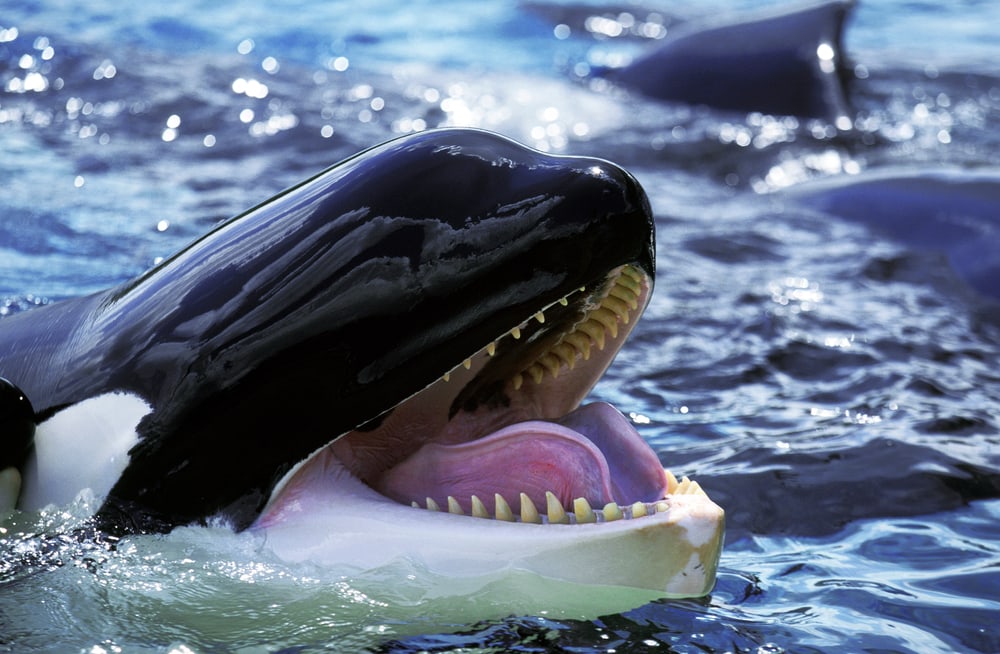Orcas, or killer whales, are one of the most recognizable aquatic mammals in the world. Well-known by their distinctive black-and-white coloring, orcas were popularized by both family-friendly films like Free Willy and controversial documentaries like Blackfish. Social, intelligent creatures, orcas swim in tight-knit family pods. Each pod has a unique culture, with hunting tactics and skills passed down through generations. And, despite popular opinion, orcas aren’t actually whales – they’re actually the largest member of the dolphin family!
Orcas are found in every single ocean in the world, and have a reputation for being merciless, fearsome predators. But why is that? Let’s talk about 20 reasons orcas are the scariest predators in the sea.
20. Orcas Are Extremely Intelligent

Much like other dolphin species, orcas are exceptionally intelligent. They’re one of only a handful of non-human species that are able to recognize themselves in a mirror, and they have the second-biggest brain of all aquatic mammals. More than that, they have an EQ of 2.5, essentially the same as chimpanzees.
Of course, it’s not just the size of the brain that matters – it’s what the orca does with it. And, as it turns out, orcas do quite a lot! They learn their distinct “language,” and are capable of both recognizing and learning other “dialects.” Their echolocation skills are extraordinary, with some scientists speculating that killer whales may be able to do more than just distinguish a general type of prey. They may actually be able to detect a specific species! For example, some orcas’ favorite food is Chinook salmon. Instead of just detecting “fish,” these skilled hunters may be able to track Chinook salmon specifically.
